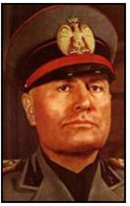 Long Answer Type
Long Answer TypeWith reference to the Union Legislature, answer the following questions:
(a) How is the Speaker of the Lok Sabha elected? State any two Disciplinary Functions of the Speaker.
(b) Explain any two conditions under which a member of Parliament can be disqualified under the Anti Defection Law.
(c) Give reasons to justify why the Lok Sabha is considered to be more powerful than the Rajya Sabha.
The President of India is the Constitutional Head of the Indian Republic. In this context, answer the following questions:
(a) How is the President elected?
(b) Mention three types of Emergencies that the President is empowered to proclaim.
(c) Explain briefly any four ‘Executive Powers’ of the President.
The Supreme Court has extensive jurisdiction. In the light of this statement, answer the following questions:
(a) What are the qualifications of the Judges of the Supreme Court?
(b) (i) Explain the composition of Supreme Court.
(ii) How are the judges of the Supreme Court appointed?
(c) Explain the cases in which the Supreme Court enjoys Original Jurisdiction.
(a) A person can qualify to become the Judge of the Supreme Court if he/she
i. Is a citizen of India and
ii. Has been a Judge of a High Court or of two more such courts in succession for at least five years or
iii. Has been an advocate of a High Court or of two or more such courts in succession for at least ten years or
iv. Is, in the opinion of the President, a distinguished jurist.
(b) i. The Supreme Court of India consists of the Chief Justice of India and not more than 25 other judges, until the Parliament by law prescribes a larger number of judges.
ii. Our Constitution makes it necessary for the executive to consult qualified judges for the appointment of the Supreme Court judges. Therefore, all the Supreme Court judges are appointed by the President after consulting with the Prime Minister and his Council of Ministers. Every judge of the Supreme Court is appointed only after the President has consulted the Chief Justice and other Judges of the Supreme Court and of the High Court. The Chief Justice appointed is the senior most judge of the Supreme Court. When the Chief Justice is unable to perform the duties of his office, by reason of absence or otherwise, the President appoints another judge of the Supreme Court as the acting Chief Justice.
(c) Original Jurisdiction: It means that the Supreme Court has the authority to hear and determine in the first instance the cases which cannot be moved in any other court than the Supreme Court.
i. The Supreme Court entertains original jurisdiction in the cases of dispute between the Government of India and one or more states or between the Government of India and any state or states on one side and one or more states on the other.
ii. Protection of Fundamental Rights: The Supreme Court also extends its original jurisdiction to cases of violation of the Fundamental Rights of individuals, and the court can issue several writs for the enforcement of these rights. An individual is allowed to approach the Supreme Court in case of violation of fundamental rights.
iii. Transfer of cases from Lower Courts: Under Article 139A, inserted by the 44thAmendment in 1978, the Supreme Court may transfer the cases from one
or more High Courts to itself if these are related to the questions of law or cases of great importance.
iv. Interpretation of the Constitution: All the cases which require interpretation of the Constitution have to be directly filed in the Supreme Court.
Explain the causes of the Great Revolt of 1857 with reference to the following:
(a) Any three political causes.
(b) Any three military causes.
(c) Any four economic causes.
Through various national movements, Gandhiji mobilised public support to win freedom for India. In this context, state the following:
(a) Any three causes for Gandhiji to launch the Non-Cooperation Movement.
(b) The name given to the uprising of 1942. Two reasons for launching this mass uprising.
(c) The impact of the Non-Cooperation Movement in India’s freedom struggle.
The partition of Bengal and the formation of the Muslim League were two important events that had an impact on the national struggle for independence. In this context, explain the following:
(a) Impact of the Swadeshi and Boycott movements as part of the Anti-Partition Movement.
(b) Any three factors relating to the formation of the Muslim League.
(c) Objective of the Muslim League.

(a) Identify the leader in the picture. Give two examples to state that the leader followed an expansionist policy.
(b) State three factors that led to the rise of Fascism.
(c) State four similarities between the ideologies of Nazism and Fascism.
With reference to the United Nations and its related agencies, answer the following questions:
(a) Explain any three functions of the WHO.
(b) State the composition of the International Court of Justice.
(c) State any four functions of the General Assembly.
